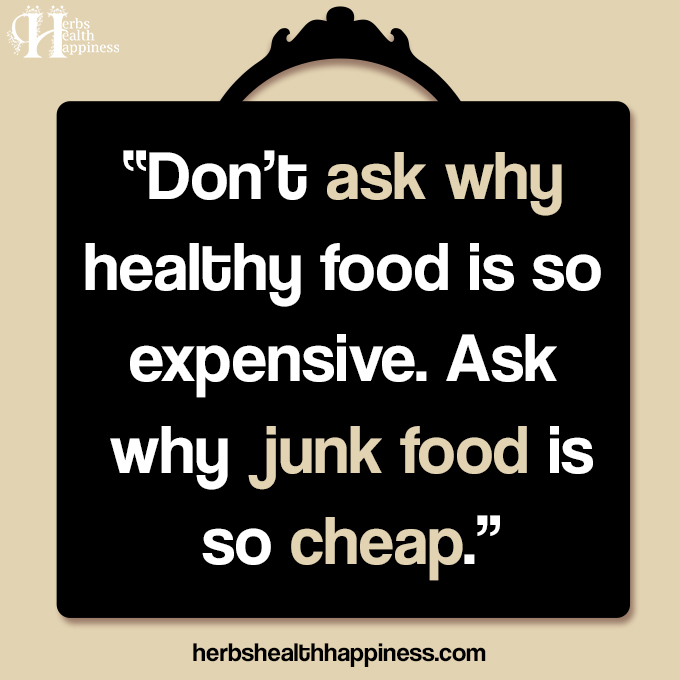
graphic © herbshealthhappiness.com (with permission)
“Don’t ask why healthy food is expensive. Ask why junk food is so cheap.”
An alarming price increase in fruits and vegetables have caused quite a stir to health experts around the world. According to a Cambridge University study, healthy foods have increased three times the price of junk foods. The rising cost of healthy options encourages more people to rely on fast-food, increasing the rate of obesity and other health-related problems.
Mark Bittman from the New York Times challenged the notion of junk food as a cheaper alternative. In his article “Is Junk Food Really Cheaper”, he discussed the benefits of cooking at home, substituting vegetables with cheaper ones, and buying from cheaper outlets like the supermarket.
However, the price flux is not to be entirely blamed for the overconsumption of junk food. A study by the Scripps Research Institute revealed that regular consumption of fast food can lead to addiction, otherwise known as “craving”. Food scientist Steven Witherly explored this addiction for 20 years and identified 3 factors for cravings: dynamic contrast (crunchy and creamy), salivary response (the saucier, the better), and rapid food meltdown and vanishing caloric density (the faster it melts, the more you consume).
Sadly, most people are still incognizant to the serious effects of junk food to their children. According to research, obesity not only affects their immunity but their psychological health as well. Living with obesity is likely to cause depression and low self-esteem to kids and teenagers.
Professional triathelete Sally Edwards once said, “If we’re not willing to settle for junk living, we certainly shouldn’t settle for junk food.”
😳 What Tinnitus Does To Your Brain Cells (And How To Stop It)
After 47 years of studies and countless brain scans done on more than 2,400 tinnitus patients, scientists at the MIT Institute found that in a shocking 96% of cases, tinnitus was actually shrinking their brain cells.
As it turns out, tinnitus and brain health are strongly linked.
Even more interesting: The reason why top army officials are not deaf after decades of hearing machine guns, bombs going off and helicopter noises…
Is because they are using something called "the wire method", a simple protocol inspired by a classified surgery on deaf people from the 1950s...
★ How To Get Rid Of Nail Fungus:
★ Does Your Salad Contain This Vegetable?
★ Top 10 Most Valuable Medicinal Herbs:





